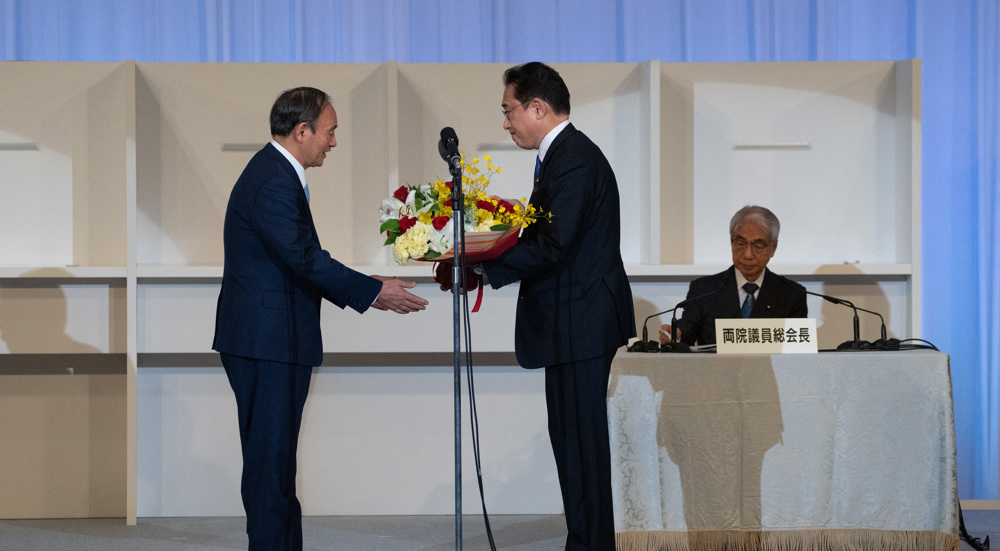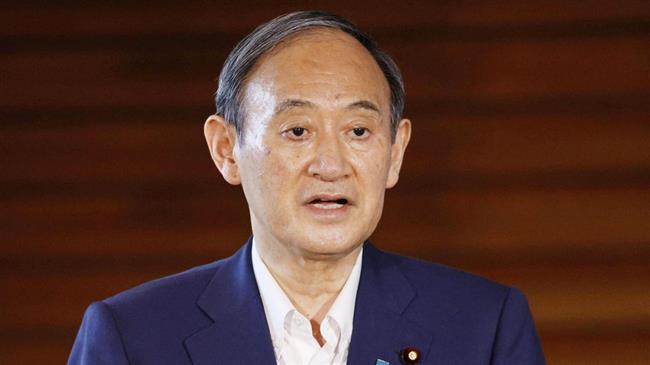Fumio Kishida takes office as Japan’s 100th prime minister
Fumio Kishida was formally elected into office as Japan's new prime minister in a special parliamentary session, after winning a race to lead the country’s ruling Liberal Democratic Party (LDP) with a pledge to bring the world's third-largest economy out of the COVID-19 pandemic.
In a special parliamentary session on Monday, Kishida won 311 votes as opposed to the 124 for opposition leader Yukio Edano.
“This chamber names Mr. Fumio Kishida as the prime minister,” lower house speaker Tadamori Oshima declared after the vote.
The upper house also approved him in a vote shortly afterward. However, the lower house holds sway on the decision.
Kishida, 64, a former foreign minister, hails from a political family, with his father and grandfather being the former members of the country's House of Representatives.
“I think it will be a new start in its true sense,” Kishida told reporters, adding that he seeks to “take on challenges with a strong will and firm resolve to face the future.”
His election came in the wake of former Prime Minister Yoshihide Suga’s resignation, who announced that he would not stand for the LDP leadership after just one year in office.
He is expected to announce a new cabinet including fresh faces in the coming days, while local media suggested he would keep on several ministers in key portfolios.
According to the local media, both Foreign Minister Toshimitsu Motegi and Defense Minister Nobuo Kishi will retain their jobs, while the finance portfolio will go to Shunichi Suzuki, who is replacing his own brother-in-law Taro Aso.
Suzuki, 68, is the son of a former prime minister and has previously served in government, holding both the Olympic minister and environment minister posts.
The new cabinet is expected to include three women, for the posts of vaccine minister, digital minister, and minister for addressing Japan's declining birthrate.
“The Kishida cabinet aims at balance with consideration given to major factions, young lawmakers, and neighboring countries,” said Junichi Makino, chief economist at SMBC Nikko Securities, adding that “It's the kind of cabinet formation that reflects Kishida, who works not to make enemies.”
The new PM faces a number of challenges such as keeping COVID-19 under control and reviving a battered economy as he looks to appeal to voters heading into an upcoming general election to be held a few weeks earlier than expected.
The new premier plans to dissolve the parliament next week and call an election for October 31.
The surprise move, amid boundless expectations for a poll in November, has all the earmarks of being aimed at exploiting a traditional honeymoon period given to new governments.
VIDEO | Report flags India’s violation of rights of Rohingya detainees
Turkey's foreign minister meets Syria's de facto leader in Damascus
'Next to impossible' to rescue patients from Gaza's Kamal Adwan Hospital: Director
VIDEO | Vietnam current prosperity
Report blames gasoil exports for shortage at Iranian power plants
VIDEO | Hind Rajab Foundation names Israeli war criminals vacationing after Gaza genocide
VIDEO | Australians rally for Gaza ahead of Christmas festivities
VIDEO | Attacks on Sana'a











 This makes it easy to access the Press TV website
This makes it easy to access the Press TV website